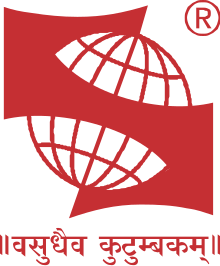1. Students will be able to use the concepts to develop effective logistical solutions for an organization
2. Students will be able to design efffecient logistics network for an organization
3. Students will be able to evaluate the logistics performance of an organization
4. Students will be able to use various tools and techniques
CO1- Students will be able to develop effective logistical solutions for an organization
CO2- Students will be able to design efffIcient logistics network for an organization
CO3- Students will be able to evaluate the logistics performance of an organization
CO4- Students will be able to evaluate various tools and techniques used in logistics
CO5- Student will be able to analyse the role of third, forth and fifth party logistics
2. Students will be able to design efffecient logistics network for an organization
3. Students will be able to evaluate the logistics performance of an organization
4. Students will be able to use various tools and techniques
CO1- Students will be able to develop effective logistical solutions for an organization
CO2- Students will be able to design efffIcient logistics network for an organization
CO3- Students will be able to evaluate the logistics performance of an organization
CO4- Students will be able to evaluate various tools and techniques used in logistics
CO5- Student will be able to analyse the role of third, forth and fifth party logistics
Catalogue Code: T2527
Course Type: Generic Core Course
Total Credit: 2
Credits (Theory): 2
No. of Hours: 30
Internal Marks: 60
External Marks : 40
Total Marks: 100
Experiential Learning: Yes
Course Code: 212410220
Floating Credit: No
Audit Course: No
Course Needs: Global
1. Discuss the conceps of service operations management and the service package-inputs, experiences and outcomes
2. Apply concepts of customer relationship, their expectations and satisfaction and managing supply relationship in service operations
3. Evaluate service processes, resource utilization and the impact of networks, technology and information
4. Link performance management, operations decisions to business performance driving operational improvements and service culture to make an organisation a world-class service provider
CO1- The students will be able to analyze sentiment and opinion analysis in the development of business solutions
CO2- The students will be able to create social CRM network models to solve business related issues
CO3- The students will be able to explain the types of data in social networks for business related issues in allied sectors
CO4- The students will be able to implement context mining based natural language processing algorithms for data extraction in SM for business related fields
CO5- The students will be able to examine the ethical and legal implications of leveraging social media data
2. Apply concepts of customer relationship, their expectations and satisfaction and managing supply relationship in service operations
3. Evaluate service processes, resource utilization and the impact of networks, technology and information
4. Link performance management, operations decisions to business performance driving operational improvements and service culture to make an organisation a world-class service provider
CO1- The students will be able to analyze sentiment and opinion analysis in the development of business solutions
CO2- The students will be able to create social CRM network models to solve business related issues
CO3- The students will be able to explain the types of data in social networks for business related issues in allied sectors
CO4- The students will be able to implement context mining based natural language processing algorithms for data extraction in SM for business related fields
CO5- The students will be able to examine the ethical and legal implications of leveraging social media data
Catalogue Code: T2187
Course Type: Generic Core Course
Total Credit: 2
Credits (Theory): 2
No. of Hours: 30
Internal Marks: 60
External Marks : 40
Total Marks: 100
Experiential Learning: Yes
Course Code: 212410221
Floating Credit: No
Audit Course: No
Course Needs: Global
1. The student manager will be able to review the supply chain risk management process
2. The student manager will be able to analyze the problems and challlanges with supply chain risk management
3. The student manager will be able to create and design a reliable Supply chain
4. The student manager will be able to prepare business continuity plans in view of SCM risks
CO1- The student manager will be able to explain the supply chain risk management process
CO2- The student manager will be able to analyze the problems and challlanges with supply chain risk management
CO3- The student manager will be able to create a reliable Supply chain
CO4- The student manager will be able to design business continuity plans in view of SCM risks
CO5- The student manager will be able to explain supply chain risk management standards.
2. The student manager will be able to analyze the problems and challlanges with supply chain risk management
3. The student manager will be able to create and design a reliable Supply chain
4. The student manager will be able to prepare business continuity plans in view of SCM risks
CO1- The student manager will be able to explain the supply chain risk management process
CO2- The student manager will be able to analyze the problems and challlanges with supply chain risk management
CO3- The student manager will be able to create a reliable Supply chain
CO4- The student manager will be able to design business continuity plans in view of SCM risks
CO5- The student manager will be able to explain supply chain risk management standards.
Catalogue Code: T2177
Course Type: Generic Core Course
Total Credit: 2
Credits (Theory): 2
No. of Hours: 30
Internal Marks: 60
External Marks : 40
Total Marks: 100
Experiential Learning: Yes
Course Code: 212410222
Floating Credit: No
Audit Course: No
Course Needs: Global
